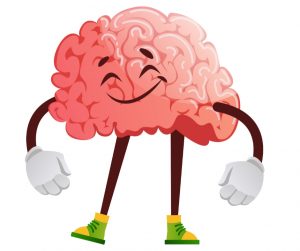Differences Between Being Smart and Wise: Smart and wise are two positive words that describe a person’s intelligence and judgment. You may have noticed a variation in usage between these two adjectives, despite their comparable meanings.
Parents frequently refer to their children as smart or their children’s instructors as smart, while the term “wise” is rarely used. Do you recall which kids were labeled as smart when you were a kid or that overachieving cousin you were often compared to? Growing up, being smart was synonymous with possessing the secret to success. It was practically given that if you were smart as a kid, you’d be successful.

A smart individual does not have to have a lot of experience or information to be smart. Wise is a term that is more usually associated with those who are older and more experienced. A knowledgeable individual is always well-versed in their field. The term “smart” is a colloquial term that is often used among teenagers. Wise is mostly employed in a formal circumstance. Because the word smart has a more casual meaning, it is more commonly used in spoken English.
In written language, formal is preferable, although it is also evident in spoken language. People who are intelligent have a proclivity towards rationality. Wise individuals are also drawn to the emotional and spiritual aspects of reasoning.
Let’s examine the distinctions between wisdom and smartness.
Recommended: Signs that shows you are an intelligent person
What Does It Mean To Be Wise?
The term wise refers to a person’s ability to make wise decisions. Wise is a word that describes someone who has a lot of experience, knowledge, and sound judgment. The term “wise” is usually linked with persons who are older and have greater experience. Knowledge, experience, sound judgment, sensitivity, wisdom, and other attributes are all covered by the term wise.

Wise isn’t meant to be a one-time compliment; rather, it’s meant to acknowledge a person’s general intellect. Experience and wisdom are always present in a wise person. The term is primarily used in formal situations.
Wise individuals share some features. They are more interested in the emotional and spiritual aspects of reasoning. Wise individuals utilize their knowledge to motivate and assist others. They gain knowledge with full comprehension by taking their time, and they also listen to others to expand their knowledge. They are less prone to speak up and assert their opinions.
A wise individual also possesses a wide range of information. It isn’t only limited to literature. It is for this reason that sensible people act on what they know. He is also completely aware of his inadequacies, which helps him discover new areas of knowledge. Wise individuals are aware of their strengths, yet they remain modest in order to learn more.
Also see: How to become an intelligent student at school
What Does It Mean To Be Smart?
The adjective smart is a term that relates to intellect. The term “smart” is a colloquial term that applies to persons of all ages. Quick-witted intelligence is a smart cover quality. To be clever, one must possess a high level of intellect. Smart individuals are more likely to achieve success in their life. Smart may also be used as a complement to describing someone who isn’t particularly bright but accomplished something smart in a certain scenario.

A smart individual does not have to have a lot of experience or information to be smart. This term is used in a casual setting. It is frequently connected with children. Because the word clever has a more casual meaning, it is more commonly used in spoken English. Being smart does not necessitate prior experience; theoretical knowledge suffices.
The term smart may also be used to describe a person’s physical appearance. Smart refers to someone who is well-dressed and tidy. Smart people have a few distinguishing qualities. Smart individuals use their intelligence to their advantage by solving difficulties. They have a logic bent and are quick to learn and apply new information. They also enjoy expressing and imposing their opinions. Smart individuals have faith in their talents and are self-assured in their abilities.

Recommended: How to easily remember after reading
Major Differences Between Being Smart and Wise
a. Meaning: Smart is a word that stresses intelligence, but wise is a word that emphasizes someone with a lot of experience, knowledge, and sound judgment.
b. Gamut of ages: The term “smart” is used to describe persons of all ages. The word wise, on the other hand, is more usually associated with persons who are older and more experienced.
c. Formality: The term smart is a colloquial term, but the term wise is more commonly used in official settings.
d. Language, both spoken and written: Smart is more commonly used in spoken language; wise, on the other hand, is more commonly used in written language but is also used in spoken language.
Also see: Advantages and Disadvantages of being an introvert
e. Knowledge and experience: A smart individual does not necessarily have experience and knowledge; on the other hand, a wise person always does.
f. Attributes: Smart refers to qualities such as quick-witted intellect, but wise refers to qualities such as knowledge, experience, sound judgment, sensibility, wisdom, and the like.
g. Aptitude: Smart individuals utilize their intelligence to their advantage by solving issues, but wise people use their knowledge to inspire and assist others.
h. Moves: Smart individuals go toward reasoning; wise people, on the other hand, gravitate toward the emotional and spiritual aspects of logic.
Recommended: Countries with the best education system in the world
Which Is Preferable: Wisdom Or Smartness?
If you are smart, you will know things, be able to comprehend new knowledge, and also be able to function in your surroundings. Smartness is a combination of a person’s capability and ability to learn.

Wisdom requires more than just these things. How will you handle it when you have to put what you’ve learned into practice? How would you cope in a new situation if you are unfamiliar with the rules? When there aren’t any, what rules would you follow?
Wisdom comes from understanding the real world as it is, in all of its complexities, rather than the limited environment in which you learned. Can you decipher what’s actually going on by interpreting new occurrences, patterns, and behaviors and determining what has to be done? That’s wisdom if you can accomplish it.
I also believe that smartness aids in the evaluation of your options, but wisdom is what allows you to make the best decisions most of the time.

Also see: Causes, Effects and Solutions to Brain Drain in Africa
There are several varieties of smartness, however, they are generally divided into two categories: Fluid Intelligence (primarily your intrinsic capabilities) and Crystalized Intelligence (mainly your learned abilities) (largely your accumulation of knowledge and understanding). Wisdom, in my opinion, is the capacity to generate a broad and diversified pool of crystallized intellect and put it to good use.
Being smart is necessary, but not sufficient. If you want to reach your full potential and serve as a leader in your family, your company, and your community, it is wisdom that matters, and it is something that people value highly. Being smart is valued, but wisdom is revered.

Recommended: Key Differences Between Java and JavaScript
Conclusion
The best strategy is to focus on being wise and smart. Allow yourself to be challenged in order to sharpen your thoughts. To transform your information into wisdom, put what you’ve learned into practice. You are deemed wise if you know but do not act. Even though you make errors, if you learn and apply what you’ve learned, you’re on your way to being intelligent. And you’ll notice a change in the way you deal with people, conquer problems, settle issues, manage money, and provide value to your profession as a result of doing so.

Edeh Samuel Chukwuemeka, ACMC, is a lawyer and a certified mediator/conciliator in Nigeria. He is also a developer with knowledge in various programming languages. Samuel is determined to leverage his skills in technology, SEO, and legal practice to revolutionize the legal profession worldwide by creating web and mobile applications that simplify legal research. Sam is also passionate about educating and providing valuable information to people.
